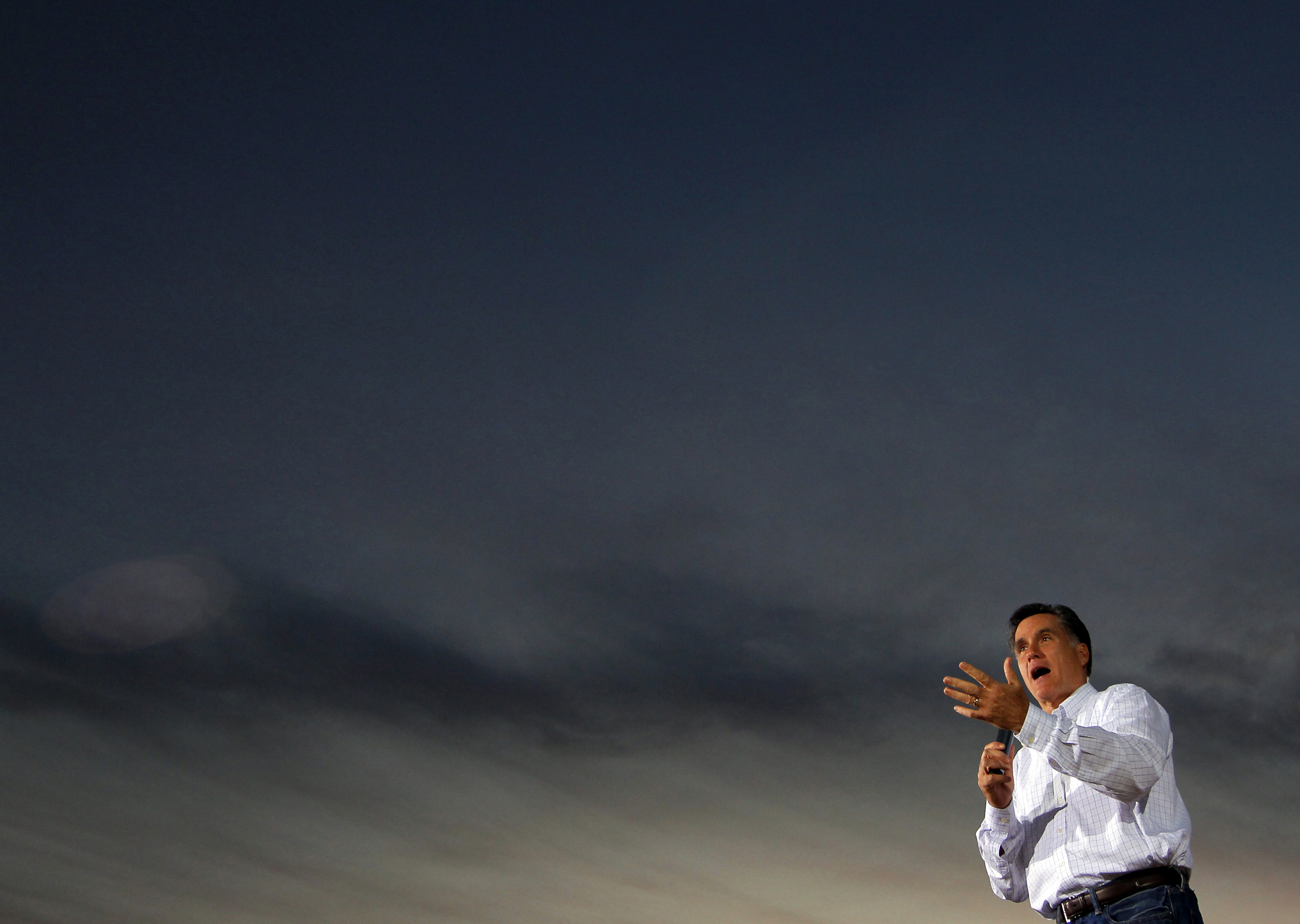We should have listened to Mitt Romney about Russia
They laughed when he declared Russia our "number one geopolitical foe." Who's laughing now?


A free daily email with the biggest news stories of the day – and the best features from TheWeek.com
You are now subscribed
Your newsletter sign-up was successful
Donald Trump's ties to Russia are deeper than you want. His policy toward Russia is warmer than you want. But America's problem with Russia is much bigger than Donald Trump.
Let's back up, for a moment, to a hot mic from years past, into which President Barack Obama accidentally shared with the world, and not just Russia's then-President Dmitri Medvedev, that he'd enjoy "more flexibility" on missile defense matters after his own re-election in 2012. Mitt Romney, challenging Obama for the White House, pounced. Although a nuclear-armed Iran counted as the world's greatest threat, Romney allowed, Russia earned an even more dubious distinction, in a way. "This is without question our number one geopolitical foe, they fight for every cause for the world's worst actors," he told CNN's Wolf Blitzer, calling the president's plan for wiggle room "very, very troubling indeed."
The New York Times editorial board chalked Romney's words up to "a shocking lack of knowledge about international affairs or just craven politics." But a few short years later, everything has changed. With Putin having his way from Snowden to Syria to Ukraine and beyond, Romney looks like a pinstriped Nostradamus.
The Week
Escape your echo chamber. Get the facts behind the news, plus analysis from multiple perspectives.

Sign up for The Week's Free Newsletters
From our morning news briefing to a weekly Good News Newsletter, get the best of The Week delivered directly to your inbox.
From our morning news briefing to a weekly Good News Newsletter, get the best of The Week delivered directly to your inbox.
We should have listened to Mitt Romney on Russia.
This was actually the perfect setup for a Republican nominee — perhaps Mitt himself! — to come along and refuse to "ingratiate himself with the Kremlin," as Romney had personally accused Obama of doing. That, alas, is not what the GOP got. Now it's former CIA director Michael Hayden throwing shade at Donald Trump on CNN by saying that "flexibility and creativity might actually be good selling used cars and selling real estate, but when you want to be the head of an international superpower, precision and consistency are really important." For Republicans, this is a huge humiliation, even by Trumpian standards.
On one extreme of the Russia debate are those like Trump who seem to dream of a grand bargain or great-power bromance with Putin. On the other are those who believe Russia is an evil empire led by a man who needs to be bashed down. The truth, as anyone truly nostalgic for the Cold War can appreciate, is shaded more subtly than that. In fact, although Russia is not the top global threat to peace and security, it is certainly the world's number one geopolitical problem — a matrix of challenges and vices so severe that no power or combination of powers can correct for them. This, even more than the regime's cruel, conniving, and malevolent modus operandi, is the reason Russia is America's top geopolitical foe.
Let us count the ways Russia is too broken to fix. Bad demographics? Check. Bad economy? Check. Weak borders? Restive minorities? Religious troubles? Check 'em all. And don't forget the massive nuclear arsenal, or, even harder to control, the organized crime — boasting an international reach, and availing itself of a uniquely vast and deep pool of cybercriminals. Crowning Russia's endemic dysfunction, the country doesn't even enjoy a stable system of succession for leadership.
A free daily email with the biggest news stories of the day – and the best features from TheWeek.com
Until these things change, Russia is destined to be a big problem for us — not just because we're the world's top dog, but because even if we back away from that role, no one else can step up and deal with the madness and mayhem emanating from Moscow.
They all laughed when Romney warned us of this very thing in 2012. Who's laughing now?
James Poulos is a contributing editor at National Affairs and the author of The Art of Being Free, out January 17 from St. Martin's Press. He has written on freedom and the politics of the future for publications ranging from The Federalist to Foreign Policy and from Good to Vice. He fronts the band Night Years in Los Angeles, where he lives with his son.
